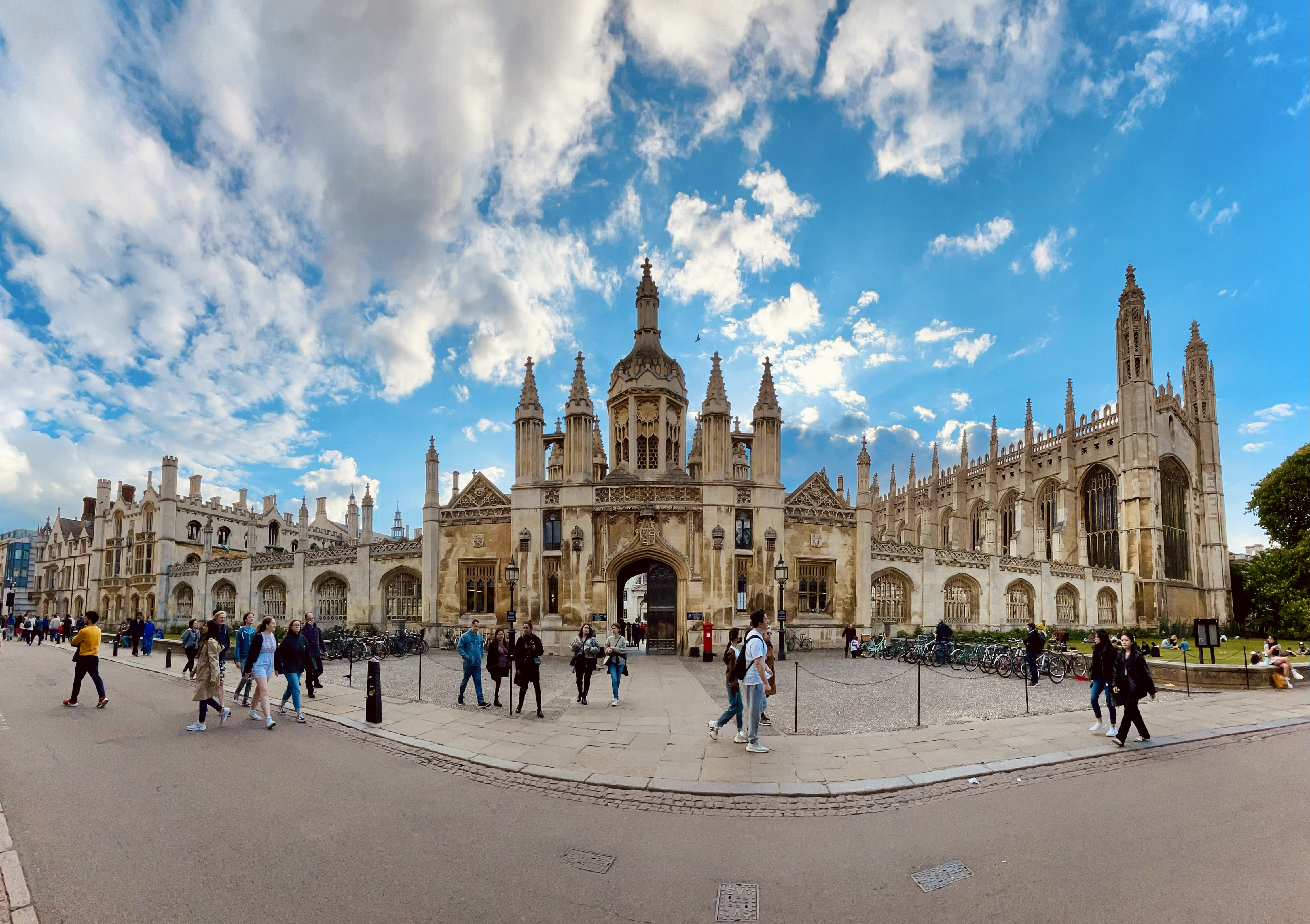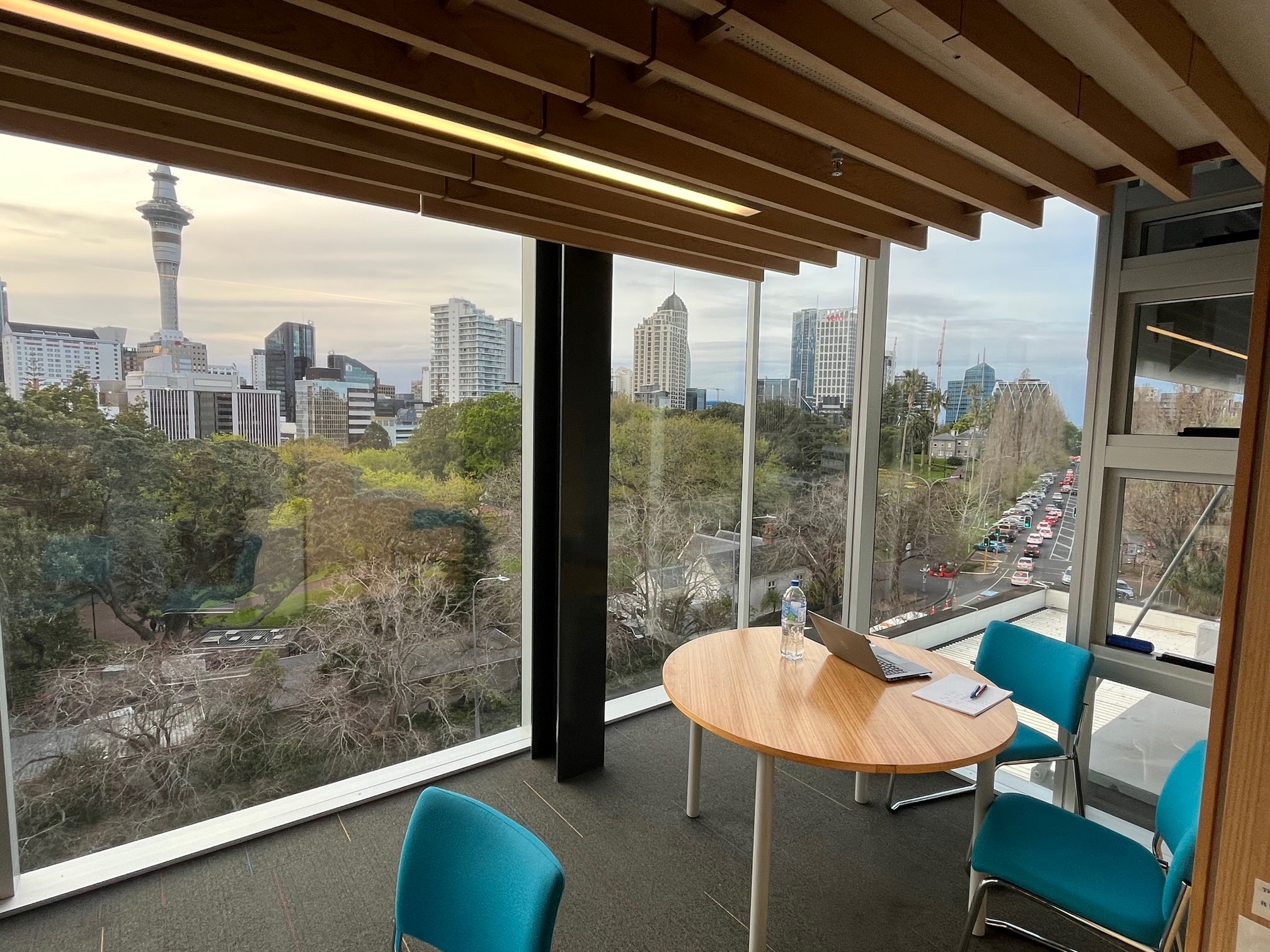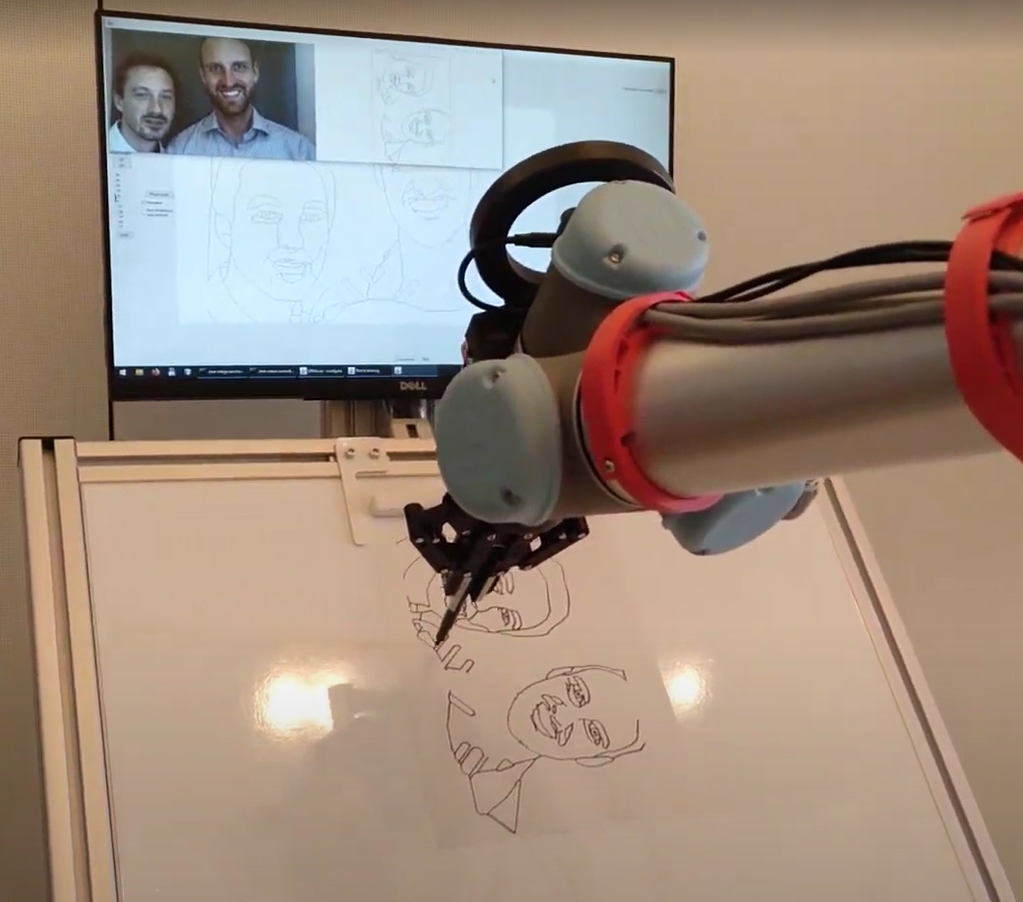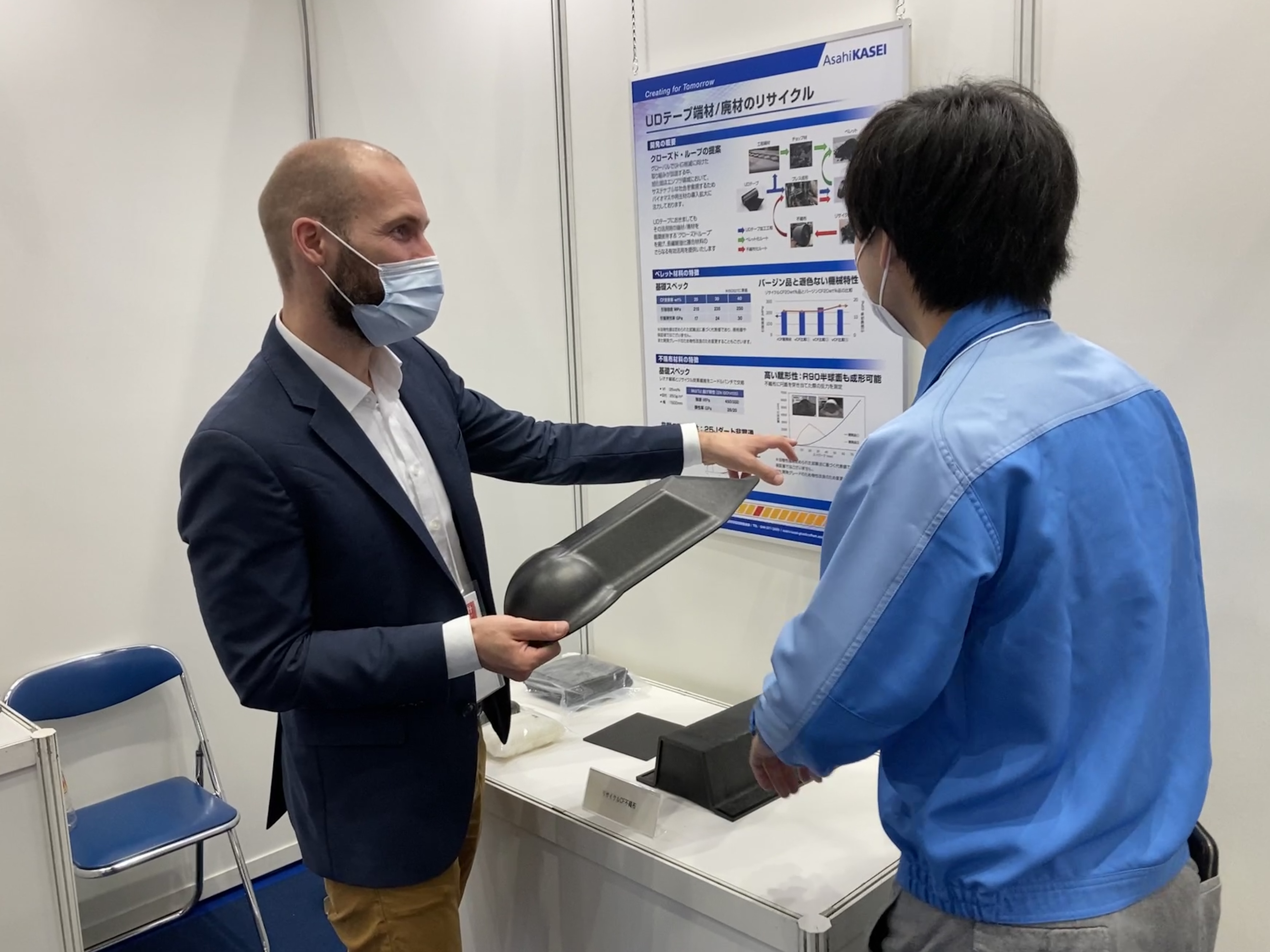Greetings from far away: As a visiting scientist on the road all over the world
Researching abroad - adding to knowledge and cultivating international contacts: Fraunhofer IGCV employees regularly conduct research as guests at renowned foreign universities and research institutions. In addition to academic networking, these lifelong contacts can be precious for international project acquisition.
Everyone involved benefits from a stay abroad at international research institutions: the scientists, who become even more closely networked in their field; the host institution, which obtains substantial expertise for a relevant research field; and Fraunhofer IGCV, which further expands its international profile and worldwide contacts through collaborations with renowned universities. After these stays could not occur in 2021 due to the pandemic, some PhD students again took advantage of the opportunity in 2022 for a research stay of several months for further education and training purposes.
The Fraunhofer Institute for Casting, Composite and Processing Technology IGCV was the first Fraunhofer Institute with a production engineering focus in Bavaria. Since then, the approximately 120 scientists have focused on application-oriented research: they are shaping the path to the future of efficient engineering, networked production and intelligent multi-material solutions. This success is partly made possible by the institute's extensive, close-knit network in industry and academia. New research impulses and partnerships are constantly emerging thanks to contacts with relevant research institutions and international universities. An essential component in the network maintenance are stays abroad for several months for further education and training, carried out by PhD students of Fraunhofer IGCV. Here, the initial contact is often made through the institute management, who is professionally established and knows the most influential people in companies, universities and non-university institutions. This is an excellent opportunity for the employees' personal development: »The scientists gain experience in other cultures and scientific work at institutions abroad. They can expand their network and train language skills along the way«, says Prof. Dr.-Ing. Wolfram Volk, executive director of the institute at Fraunhofer IGCV. »After all, such stays are also an essential asset on the resume and thus very helpful for later careers in science or industry.«
Cross-border knowledge exchange, international cooperation
The professional exchange is also worthwhile for the institute: New research impulses and potential research partnerships arise, the institute's network is intensified, and international visibility increases - not only at the management level. Long-term collaborations often result with the host institutions, which research similar focal points. For example, joint research proposals are regularly initiated for Fraunhofer IGCV as a result of the research stays. During their stay at the Hungarian Computer Science and Control Research Institute (SZTAKI), Lukas Bank and Philipp Theumer (Fraunhofer IGCV, Intelligent Production Organization Group) submitted a joint proposal. This will be realized as part of the research and development projects funding between Germany and Hungary with the EUREKA initiative based at DLR. However, this is just the beginning. »The project aims to take energy efficiency into account in the design and operation of plants«, says Theumer. »Through the research project, subject to a favourable decision, the cooperation that has been established should be further expanded. Through this, the cross-border knowledge exchange within Europe can be continued.«
Kilian Vernickel (Fraunhofer IGCV, Intelligent Process Control and Robotics Group) reports a similar story from his guest visit to the CAMT (Centre for Advanced Manufacturing Technologies), chairperson at the Polish Wrocław University of Science and Technology. At Fraunhofer IGCV, research is also being conducted here on the digitization of production systems, and additive manufacturing is a central joint research area. »In Wroclaw, I initiated a joint research proposal for our institute as part of the Collective Research Networking (CORNET) network. We are working on this with the Materials Handling Material Flow Logistics Chair at the TU Munich and CAMT. I would be pleased if cooperation and also research exchanges of scientific staff can be continued via a joint research project.«
From Theory to Practice: Research for and with industrial partners
In addition to the exchange with colleagues from the scientific field, a research stay makes it possible to get to know relevant companies. Max Horn (Fraunhofer IGCV, additive manufacturing - Implementation and Process Chains Group) worked in an international research group at the University of Cambridge for several months. »I was extremely well networked and got to know many well-known players at meetings with industrial partners and research institutions such as Nottingham, Sheffield and Teesside. These contacts are precious for future research projects.« The exchange also works on the other side: In Auckland, Thomas Neuhäuser (Fraunhofer IGCV, Collaborative Factory Planning Group) established contacts with New Zealand companies dealing with his »Building Information Modeling« topic. There he investigated how production can be virtually rebuilt, simulated, analyzed and optimized with the help of a digital assembly system model.
Funding instruments make stays abroad possible
Frank Manis (Fraunhofer IGCV, Composites Recycling Group) met Japanese companies and exchanged ideas on automated production. He spent several months in Tokyo as part of the Fraunhofer International Mobility Program FIM. »The program's goal is to establish or deepen strategic partnerships with universities and non-university research institutions«, Manis says. »Without the FIM, this would not have been possible for me. In addition to much input for my research work, I bring knowledge gained from abroad, new project ideas, joint publications and an even more extensive international network back to Fraunhofer IGCV. This allows me to support the transfer of knowledge actively.« Programs like the FIM are indispensable for the stays abroad. This is because tuition fees and living costs on site are sometimes enormous and would be difficult to afford without a scholarship. The researchers are particularly grateful to the various institutions that support the stays. These include the Bavarian Research Foundation, the German Academic Exchange Service (DAAD), the German Research Foundation (DFG) and various foundations. »As institute directors, we can open the necessary doors at renowned institutions for our outstanding employees«, says Wolfram Volk. »When they pass through and come back with a reflected research approach, new methods and a sharpened research profile of their own, it enriches us personally as PhD supervisors as well as the institute as a whole.«
Research for the doctorate
During a research stay, the focus is on one's doctoral topic. While abroad, employees gain valuable insights to incorporate into their dissertations.
Research stays 2022
| Name | Doctoral topic |
Lukas Bank |
Method for creating a digital twin for the energy-flexible factory |
Max Horn |
Quality-oriented handling of powder cross-contamination during laser beam melting |
Frank Manis |
Thermal treatment and mechanical evaluation of carbon fibers in the recycling process |
Thomas Neuhäuser |
Systematics for target-oriented factory layout planning with Building Information Modeling |
Philipp Theumer |
Learning and explainable system for decision support in production control |
Kilian Vernickel |
Knowledge management system for the adaptation of discrete-event simulation models |
Last modified:



